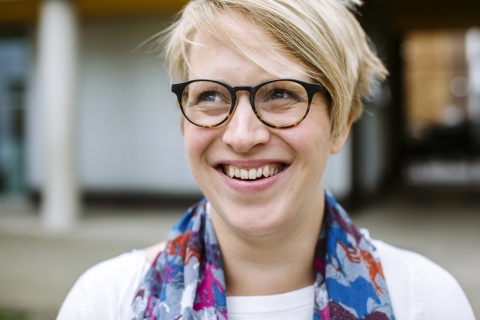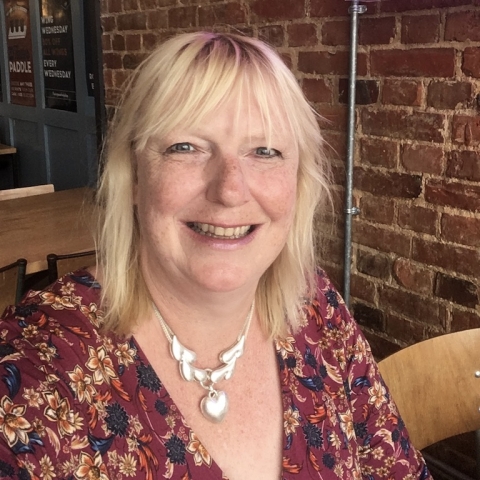

The CCI Learning and Teaching Conference was a vibrant event that brought together colleagues across all schools in the Faculty to discuss, share and showcase Creative Teaching and Learning.
Given the momentous events of recent years, and the adaptations made to learning and teaching practice in response, it was a really valuable opportunity to share practice across our creative disciplines. The conference, held on the theme of “Celebrating the difference we make”, was designed to highlight innovative and creative teaching and learning practices that have been implemented across the Faculty. It was brilliant to see colleagues discussing experiences and learning from each other.
Throughout the conference, there were several engaging sessions focusing on a number of current themes: Engaging Industry and Community; Learning Beyond the Classroom; Rethinking Teaching and Assessments; and Developing Critical Thinking. There are too many brilliant sessions to cover in this blog post, but I have included some of my highlights.
Firstly, a powerful presentation by Jordan Buckner from the School of Creative Technologies. His words resonated very strongly with the audience: the fact that the rush to return to “normal” after the pandemic is a misplaced idea. The widespread pivot to digital during the pandemic, as Jordan put it, was supposed to be a chance for the world to learn about a new way of living and working.
A renewed focus on friends and family, fewer cars on the road, and lower impacts on the climate. Instead, we’ve simply rushed back to our old ways – overworked schedules, busy commutes, and meetings for the sake of meetings.
Jordan Buckner , School of Creative Technologies
Jordan advocated for a better way of doing things, a hybrid (some may say blended and connected) creative approach to teaching and learning.
This conference confirms and importantly celebrates that we are adapting and changing our teaching and learning approaches post-pandemic to be more creative, more student-centred and ultimately more enjoyable for staff and students.
Engaging Industry and Community
Matt Higgins, from the School of Creative Technologies, discussed Industry Alignment and Real-World Curriculum Design. Using the suite of Computer Games courses as a case study, Matt highlighted how alignment to the fast-moving video games industry can be seen in a shared focus on problem-based learning, portfolio-oriented assessments and the use of real-world clients as part of modules and co-curricular activities. This prioritisation of real-world curriculum is also part of the teaching delivery, including structuring classes around industry-style, agile-inspired ‘stand-ups’, and also through the introduction of studio modules which emulate the games industry studio environment.
Nicola Hay, from the School of Art, Design and Performance, showcased a beautiful and inspiring Illustrated Menagerie – AR Scavenger Hunt, used to engage the local community to interact with spaces around Portsmouth. This project was undertaken as part of We Shine Festival 2022, a festival of Art and Light organised by Portsmouth Creates. The AR trail features 35 illustrated animal artworks from Illustration students and staff, each augmented with moving imagery, sound and a text clue for the following artwork’s location in the trail.
Learning Beyond the Classroom
Louis Netter, from the School of Art, Design and Performance, presented how off-campus live storyboarding workshops are being used in Level 4 BA Illustration. The workshops focus on Portsmouth’s history and utilise the Historic Dockyards, Ankle Deep Studios and drawing around Southsea. Students’ imaginations are challenged as they have to use the dockyard as a setting for specific historical events to emulate 19th century reportage drawing.
Anna Limpens, from the School of Creative Technologies, discussed the process of creating a community of practice within the Computer Games Production course. This included a wonderful gif of trying to herd a bundle of kittens. In addition to curriculum and assessment interactions throughout the three years of study, this course also involves alumni interactions, providing a student-centred community of practice which supports them in developing their identity and their ability to lead teams and manage projects. This community is further strengthened by a mentoring and peer review process that has been developed by the students themselves. Discord is widely used to support and develop community cohesion.
Nicola Crowson and Guido Robazza, from the School of Architecture, shared their experience of the Whitelands Project where there were no leaders in the design, only a community of makers. The project involved a week-long timber construction workshop in the Whiteland’s Wood, where students engaged in the design and build of a series of temporary timber structures, responding to the ecology of the woodland. After being in place for one year, the timber components recovered will be reused in a sustainable cycle that will engage further cohorts of students. What is really lovely about the project is the sense of community and the power of conversation. Each making day was supported with a campfire conversation relating to the scales of the hand, body and landscape, meaning that everyone could learn from each other as a community of inquiry and everyone has something unique to bring to the process.
Evan Pugh and Connor Cleary, from the School of Film, Media and Communication, spoke about Eldon Hub + extracurricular sessions which are supporting inclusivity, promoting peer learning, and providing a dissemination platform for faculty research and knowledge. The focus of the extracurricular TV production cross-year group sessions use practice-based development to deliver a range of discussion shows. The sessions enable students to apply what they have learnt in their lectures, building professional standards, building networks and most importantly building self-confidence.
Rethinking Teaching and Assessments
Roberto Braglia, from the School of Architecture, shared an alternative approach to the design of assessment matrices aimed at demystifying student perception on assessment. Roberto illustrated a new strategy implemented to support students’ understanding and ownership of assessment practices. This new approach focuses on the definition of common criteria used in assessment matrices across all design modules, it is also colour-coordinated making it much easier to understand for visual learners. The aim is to improve consistency and clarity in the language used to define marking bands.
Martin Andrews, Associate Dean (Global Engagement & Education Partnerships) and Phevos Kallitsis, also from the School of Architecture, focused on alternative formats to a dissertation, demonstrating the broad range of other creative and practice-led assessment types for research-based modules across the Faculty. Reflecting on the importance of aligning field of research with creative scholarship and professional skills.
Developing Critical Thinking
Katie Wilmot, from the School of Architecture, discussed how a structured approach to student self-evaluation has been implemented and embedded across Level 4 Architecture. That promoting key values and skills, particularly curiosity and creative thinking, from the outset of the course is an effective way to enable students to engage with and take more responsibility for their own learning experience. Katie explained that by using first person phrasing the language used in the self-evaluation question set is pushing the importance of ownership and encourage value-rich responses and reflection.
Meanwhile, Kit Danowski, from the School of Art, Design and Performance, introduced new ways of short-circuiting stifled thinking, and connecting analytical with creative approaches – discussing embodied rituals, embodied rhythms, oral traditions and practice as research.
It was a great day for the Faculty of Creative and Cultural Industries and we look forward to more creative learning and teaching events this year.
Author: Dr Claire Bailey-Ross is Interim Associate Dean Academic in the Faculty of Creative and Cultural Industries at the University of Portsmouth. Claire was co-organiser of the CCI Learning and Teaching Conference.
More Education Matters blogs
A point for reflection
Discover how we're helping students develop the Hallmarks of a Portsmouth Graduate through a range of extracurricular activities.
13 April 2023
5 min read

The ‘Hidden Curriculum’ – what we forget students don’t know
16 March 2023
5 min read

